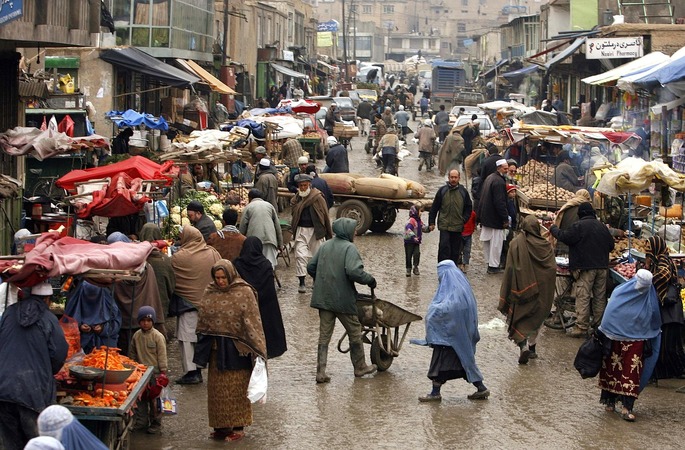COVID-19 doesn’t kill you if you are physically healthy, but it does kill many other things within you.
I am the youngest from a big family living under the shadow of the most robust tree in the world, my mother. I lost my father during the war in the 1990s. My mother is the person I know as both parents. Most of my adult life, I grew up in a woman-headed household.
In late 2013, things changed when I got the scholarship to study in Bishkek, Kyrgyzstan. Everyone in the family supported me. After all, I was the first child to enjoy such a privilege, an opportunity in our family’s history.
Not every girl who gets a scholarship is lucky enough to be allowed to pursue her dreams. I was lucky and destined to study in Kazakhstan and Kyrgyzstan in the next few years. Life in these countries is very different from the life I had in Afghanistan. My experiences as an Afghan girl in all three universities as a regular and exchange student were extraordinary.
Quality of education, students’ independence, professors’ level of professionalism, electricity and internet facilities, diversity of the students, classes, and the social environment were beyond my wild imaginations.
I lived a life I dreamed of as a refugee child and later as a teenager in my country. Challenging assignments, tight deadlines, yoga and taekwondo training, evening joggings, hiking and cafes; I rejoice at these spotlights of my journey.
However, there was a slight change in my life when I started graduate school. Life became more academic with more writing, in-depth reading, scrutinising philosophy and different research methods were more laborious.
Nevertheless, what matters is that I was heard and my opinion was valued in the academy.
In late 2019, I was finally back home in Kabul after completing nearly seven years of studying abroad.
I had prepared my mind and heart to serve my war-torn country. Besides studying hard, I had my eyes on various little initiatives in neighbouring countries throughout these years. I thought of the possibilities to apply the methods in my community.
Things had hardly changed here. Upon returning, I started working with one of the international organisations (IO) supporting peace and stability and other state-building aspects in Afghanistan.
This was a dream coming true. It was exactly where I wanted to be. As a young professional, I had started planning my future career steps until the COVID-19 or coronavirus struck Afghanistan through north and eastern borders. It hit the capital just as many of us feared, sooner than expected.
While COVID-19 is haunting people, there are other uncertainties and insecurities as well.
Yes, I see a lot of positive changes, but they are not enough. I do not think we need more time to bring changes, but the institutional effort and individual willingness must realise the impossibilities.
Despite glittering national and international media projection of post-2001 significant development, rehabilitation and now the ongoing intra-Afghan peace negotiation talks, most things remain unchanged.
As someone who deeply penetrates into the community, I observe that Afghanistan is yet to get over the forty years of war, conflict and dissidence.
As if there is no spring in Afghanistan’s political weather given the ongoing tensions over power and resources.
The ground realities are that there are dark nights because of unreliable electricity, cracked windows to the world for ordinary citizens because of limited and expensive technology and long-existing culture of insensibility toward women.
The pandemic has impacted everyone’s life in big time, positively and negatively.
I see how we are introduced to a new way of life that includes tolerating each other at home. But the cost is high with increasing domestic violence and raising unemployment.
In other words, some became unemployed instantly, others lost parts of their salaries, and the fortunate ones are left with forms of telecommuting options.
The telecommuting options include working via phone applied to teachers, online shopping etc.
As a woman, I am among the prosperous and privileged group with the telecommuting option. Telecommuting or working from home is a product of COVID-19 for Afghanistan.
As the name suggests, the employee is supposed to work from home like they would in the office. This peculiarity has many issues related to it and raises many concerns.
First, it automatically filters those practically working on fields, mine workers, and many other day wage earners.
Since the COVID-19 outbreak, due to the closure of companies and businesses and movement restrictions, some two million employable people have become jobless according to the National Department of Labour adding to an already existing eight million unemployed.
Basically, every possible way of making a living has been blocked.
As they say, not every shining stone is a diamond. The privileged group suffer in exempt ways. This group includes educated working groups and students in a broader sense.
Many if not all, suffer from inconsistency of electricity, expensive and poor internet coverage and services and psycho-social consequences.
I was worried when I first learned about telecommuting. Not because, I could not go to the office and enjoy a regular working routine, meeting interesting and inspiring people or because I knew that I had to live in isolation for an uncertain period of time, but because I could not afford to pay for a decent internet package which was going to be reimbursed afterwards.
I did not know how to deal with it until I sought help eventually. My experience is just an example of the worse off. Around 63% per cent of the population is below 25 years of age, and the worst affected group are the youth.
According to UNESCO, 391 million students (school and university) have lost their access to education. Although there are initiatives taken by different institutions and the Ministry of Education through its TV channel, its effectiveness is highly questionable. The standard and the delivery of online classes are often criticised due to the constant electricity cuts and the poor engagement and low grades of the students.
The other cursed group is privileged working women. Traditionally women are destined to manage household matters, chores and bearing children. This tradition, however, has been challenged and modified by many female game-changers.
Before the pandemic, women, led successful lives while managing the double burden of personal and professional lives.
But, the pandemic has complicated working modalities and disrupted their life as well. In general, a working woman would be at home on the weekends and focus more on personal life.
Since the movement restrictions were imposed, everyone is at home all the time. So if a working woman is at home, it means she is considered to be there primarily to meet her household duties.
This is seemingly deep down in the psyche of most families. Meaning the family expects her to spend more time with the family, since she is at home, not realising that she is supposed to have a professional life within her personal life.
That is the most challenging part because of physiological implications besides the virus spreading.
COVID-19 came like a pop quiz I never expected. I never anticipated getting stuck at home with limited options of movement, facilities and despair.
It makes me wonder what our future would look like. Would we ever have a COVID-free environment, will we ever be able to lead a pre-COVID everyday normal life seeing and meeting family and friends again?
What if working from home will remain as the new normal?



